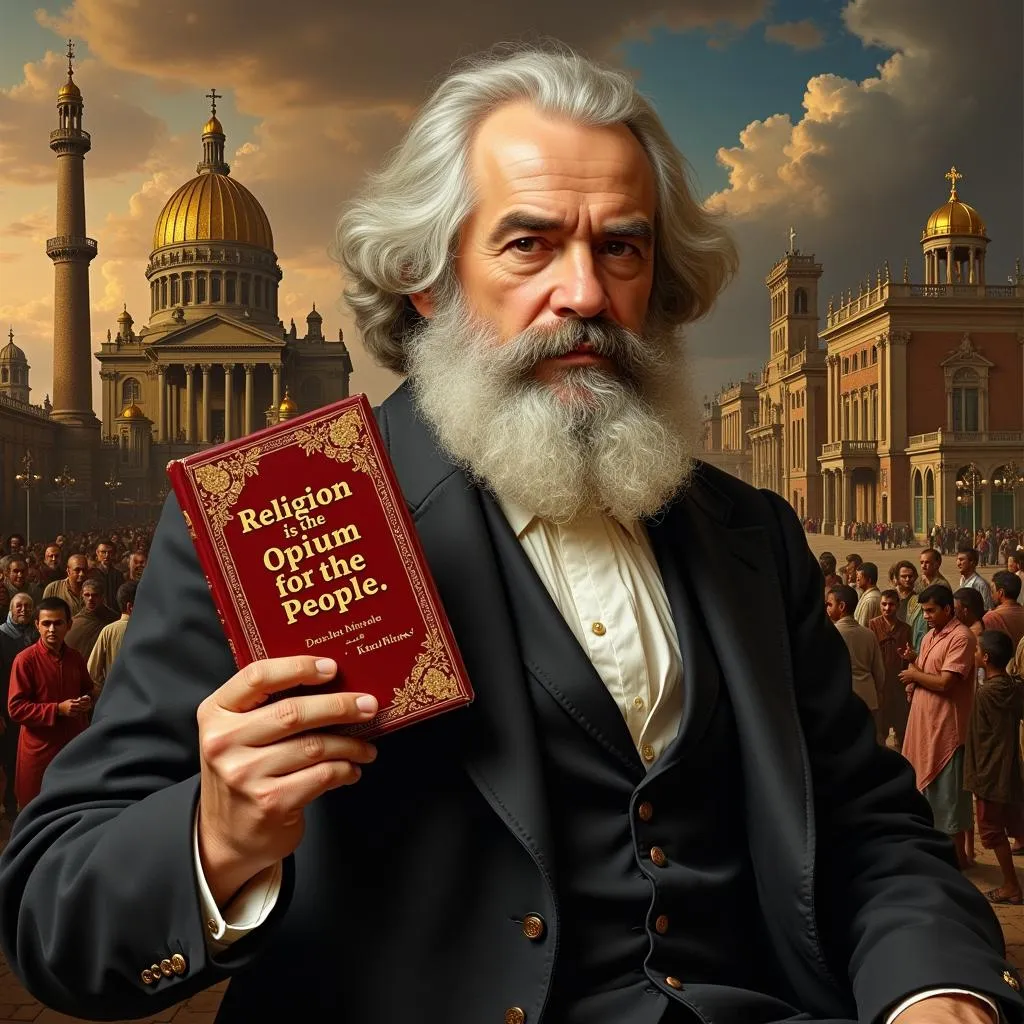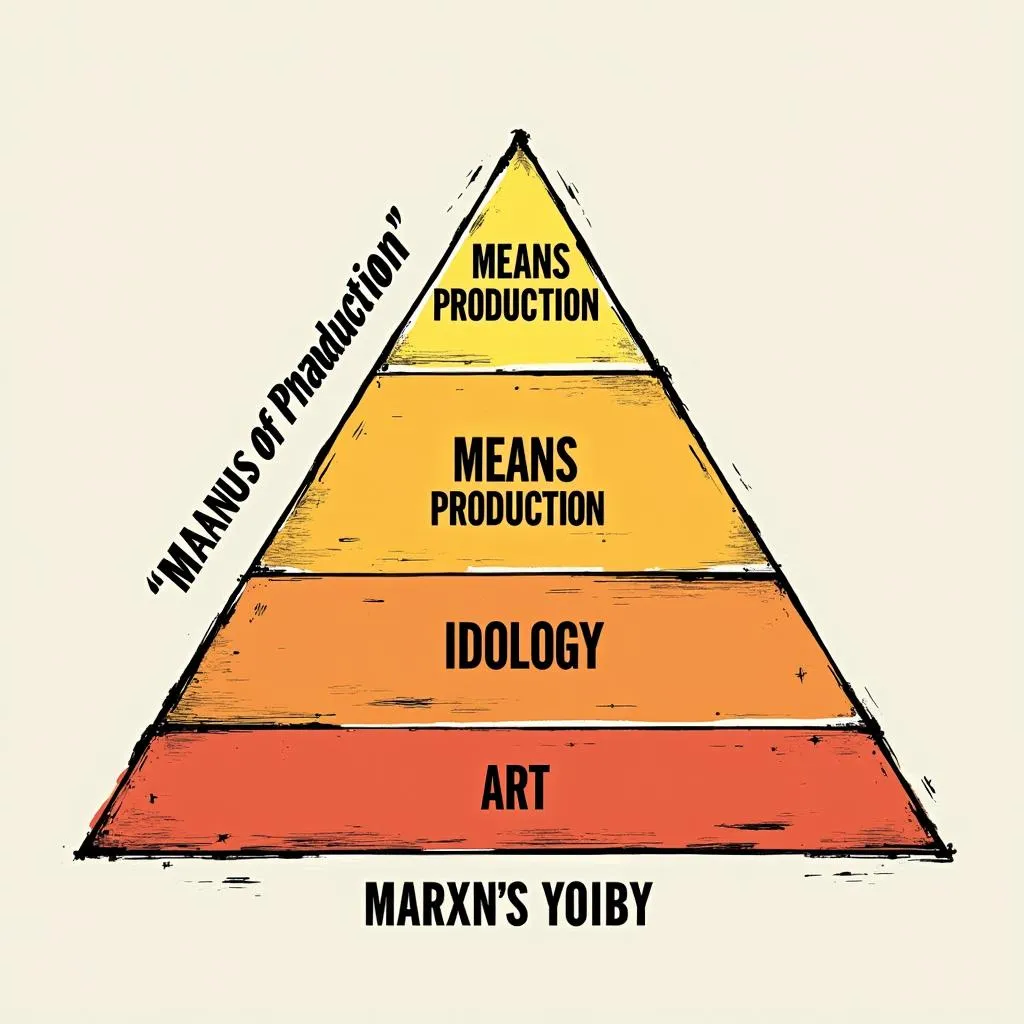Karl Marx famously declared that religion is the “opium of the people.” This provocative statement, however, represents just the tip of the iceberg when understanding his complex critique of religion and its role in society. Marx didn’t simply dismiss religion as a false ideology; he saw it as a symptom of a deeper societal illness – the oppression and alienation inherent within capitalist systems.
Unmasking the “Opium”: Religion as a Social Anesthetic
For Marx, religion acted as a kind of painkiller, numbing individuals to the harsh realities of their existence under capitalism. Exploitation, inequality, and lack of control over one’s labor created a sense of profound alienation. Religion, with its promises of heavenly reward and divine justice, offered solace and escape from these earthly struggles.
 Karl Marx and the Opium of the People
Karl Marx and the Opium of the People
It provided a lens through which suffering could be interpreted as meaningful, even virtuous. This, according to Marx, prevented people from recognizing the true source of their misery – the capitalist system itself – and thus hindered them from taking collective action to change their material conditions.
Religion as a Tool of Control: Reinforcing the Status Quo
Marx further argued that the ruling class actively used religion to maintain their power and privilege. By promoting doctrines of obedience, humility, and acceptance of one’s designated place in the social order, religion served as a powerful tool of social control. It discouraged dissent, justified inequality, and ultimately helped perpetuate the very system that caused such widespread suffering.
A Materialist Perspective: Addressing the Root Causes
It is crucial to understand that Marx’s critique of religion stemmed from his materialist conception of history. He believed that societal structures and ideologies, including religion, arose from the material conditions of production.
 Marxist Materialism and Religion
Marxist Materialism and Religion
In other words, it was the economic realities of capitalism that gave rise to the need for religion in the first place. Therefore, simply abolishing religion would not be enough. The true solution, Marx argued, lay in transforming the entire socio-economic system to eliminate the conditions that created a need for such illusions.
A Future Without Illusion? Religion in a Communist Society
While often interpreted as advocating for the outright abolition of religion, Marx believed that it would naturally wither away in a communist society. Once the exploitative structures of capitalism were dismantled, and humans were no longer alienated from their labor and each other, the need for religion’s consolations would simply disappear.
 A Communist Society Without Religion
A Communist Society Without Religion
In its place, Marx envisioned a world where individuals could realize their full potential, free from the shackles of both economic and religious oppression.
Conclusion: Moving Beyond Opium and Towards Emancipation
While Karl Marx’s analysis of religion might seem harsh to some, it offers a valuable framework for understanding the intricate relationship between belief systems and societal structures. By unveiling the ways in which religion can both mask and perpetuate injustice, Marx challenges us to confront the root causes of suffering and strive for a world where genuine human emancipation, both material and spiritual, becomes a reality.
If you’d like to learn more about fostering peace and understanding in today’s world, we encourage you to explore our other articles on the “Society For Peace” website. For personalized support or to connect with our dedicated team, don’t hesitate to contact us:
Phone: 02043854663
Email: [email protected]
Address: Khu 34, Bac Giang, 260000, Vietnam
We’re available 24/7 to assist you on your journey towards a more peaceful world.